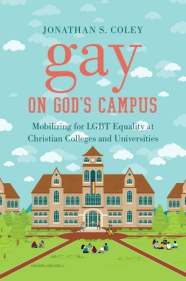Recently, I’ve begun to accept that an expanding part of my job as a teacher of undergraduates is to help them improve their information literacy skills. Digital culture has exponentially increased the amount of “information” available while also obscuring ways to make sense of it. Perhaps, like me, you can see the resistance flicker across students’ faces when you project the library’s website and broach the topic of search skills. I see students thinking, “Can’t Google just tell me what I need to know?” Perhaps, like me, you’ve worked up a spiel about the value of the databases for which their tuition dollars pay, including caveats about Wikipedia and the risks of broad Google searches made vulnerable to “optimization” and “content suppression.” Only recently did a new question cross my mind: What if my students think about their vocational discernment like just another Google search? As the question sank in, I wondered whether such an approach to vocation might be feeding certain forms of anxiety in students.
Continue reading “How We Search Now”How We Search Now
What if my students think about their vocational discernment like just another Google search? As the question sank in, I wondered whether such an approach to vocation might be feeding certain forms of anxiety in students.











